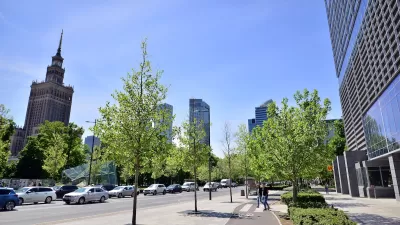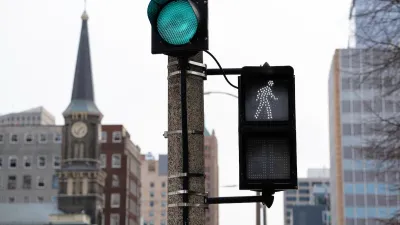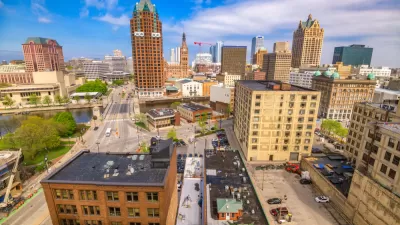The city is seeing fewer speeding violations after installing traffic calming measures and boosting enforcement to limit reckless driving.

Street safety projects in Milwaukee are having a positive impact, according to data released by the city, report David Clarey and Drake Bentley in the Milwaukee Journal Sentinel. “Of the 14 projects completed from 2020 to 2023, all of them show a reduction in speeding and fewer drivers traveling over the speed limit by 10 mph or more, according to the latest data released in August by the city's Department of Public Works.”
The number of car crashes in the city dropped by 1 percent in the last year, but fatal crashes remain more frequent than 15 years ago, with annual traffic deaths nearly doubling from an average of 39 between 2008 and 2012 to 72 per year between 2018 and 2022.
According to the article, “On the city’s north side, where residents have taken the brunt of the reckless driving blow, bump outs, traffic circles, and road diets, when a street's lanes are reduced or repurposed, were added to some main streets. For example, on North Avenue between 59th and 44th streets, speeding is down 15%, while between 30th and 24th streets, speeding is down 18%.” In other areas with traffic calming treatments, speeding was down by as much as 86 percent.
In addition to road design changes, the city and state have been cracking down on reckless driving. “Last year, a city committee approved a measure that allowed for the impounding of vehicles involved in reckless driving under certain conditions. The year prior, the city enacted a policy that allowed unregistered vehicles involved in reckless driving to be towed.”
FULL STORY: Data shows street projects led to less speeding in Milwaukee as officials crack down on reckless drivers

Planetizen Federal Action Tracker
A weekly monitor of how Trump’s orders and actions are impacting planners and planning in America.

Maui's Vacation Rental Debate Turns Ugly
Verbal attacks, misinformation campaigns and fistfights plague a high-stakes debate to convert thousands of vacation rentals into long-term housing.

San Francisco Suspends Traffic Calming Amidst Record Deaths
Citing “a challenging fiscal landscape,” the city will cease the program on the heels of 42 traffic deaths, including 24 pedestrians.

Amtrak Rolls Out New Orleans to Alabama “Mardi Gras” Train
The new service will operate morning and evening departures between Mobile and New Orleans.

The Subversive Car-Free Guide to Trump's Great American Road Trip
Car-free ways to access Chicagoland’s best tourist attractions.

San Antonio and Austin are Fusing Into one Massive Megaregion
The region spanning the two central Texas cities is growing fast, posing challenges for local infrastructure and water supplies.
Urban Design for Planners 1: Software Tools
This six-course series explores essential urban design concepts using open source software and equips planners with the tools they need to participate fully in the urban design process.
Planning for Universal Design
Learn the tools for implementing Universal Design in planning regulations.
Heyer Gruel & Associates PA
JM Goldson LLC
Custer County Colorado
City of Camden Redevelopment Agency
City of Astoria
Transportation Research & Education Center (TREC) at Portland State University
Jefferson Parish Government
Camden Redevelopment Agency
City of Claremont





























